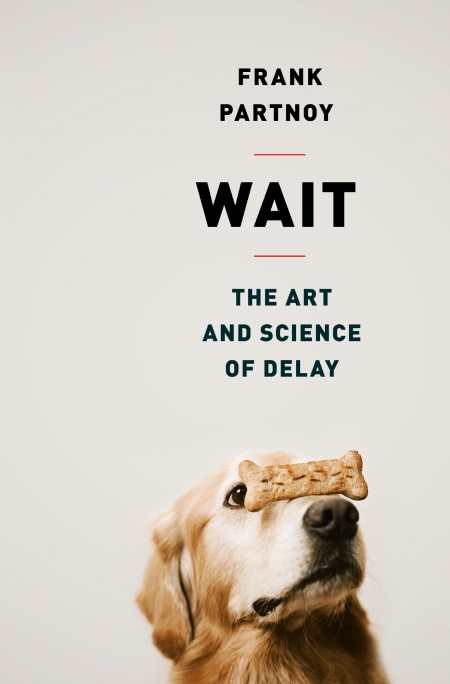Wait
The Art and Science of Delay
In 2008, when the Wall Street financial crisis hit, Frank Partnoy, author and professor of law and finance at the University of San Diego, started thinking about the “complexities of human decision-making.” He wanted to know why the decisions made by financial experts and government regulators were “catastrophically off the mark.” To clarify his understanding, Partnoy consulted scores of decision researchers and scientists and sorted through hundreds of research studies and experiments.
Wait is the notable culmination of Partnoy’s analysis. It asks and answers intriguing questions about our behavior and interpretation of time. Why do we procrastinate, and is it a bad thing? Could our exposure to subliminal stimuli (for instance, the logos of fast-food restaurants like McDonald’s) contribute to our “frenetic” way of life, interfere with our happiness, and lead to flawed decision making? Are our first impressions trustworthy, or are they manifestations of unconscious bias?
As the book’s title advises, it’s in our best interest to postpone decision making for as long as we can. It may seem counterintuitive to pause when circumstances in our personal and professional lives demand action or reaction, but our ability to manage delay leads to sound decision making.
Partnoy begins by discussing human reaction times measured in milliseconds. He uses the example of “superfast sports” like tennis and baseball and the “rapid-fire” decision-making framework professional athletes implement when returning a 100 mph serve or hitting a 90 mph fastball. Admittedly, most of us will never make such skilled decisions in mere milliseconds, but the approach—observe, process, and act at the last possible moment—is one we should adopt before settling on a course of action.
Similarly, the delivery of an effective apology is based on timing. But, when is the ideal moment to express regret? If we accidentally step on someone’s toe, an immediate apology is expected, whereas a delayed one seems disingenuous. Yet, what if we commit a “serious personal transgression” such as infidelity? Knowing how and when to apologize is crucial, especially if we seek forgiveness.
To guide us, Partnoy cites psychiatry professor Aaron Lazare’s four-part strategy for effective apologizing: “acknowledgment, explanation, remorse, and repair.” Following this checklist doesn’t guarantee success, Partnoy maintains, but it may prevent a bad situation from getting worse. To illustrate, he explains how New York Congressman Anthony Wiener’s sexual-transgression apology was a calamitous mess and how comedian Tracy Morgan’s careful and well-timed apology for gay bashing during a performance placated the public.
Wait is instructive and entertaining. Its evaluation of our time-management skills resonates after the last page is read. Wait has the power to change our behavior if we follow the deceptively simple adage that it invokes: “Don’t just do something. Stand there.”
Reviewed by
Amy O'Loughlin
Disclosure: This article is not an endorsement, but a review. The publisher of this book provided free copies of the book to have their book reviewed by a professional reviewer. No fee was paid by the publisher for this review. Foreword Reviews only recommends books that we love. Foreword Magazine, Inc. is disclosing this in accordance with the Federal Trade Commission’s 16 CFR, Part 255.

